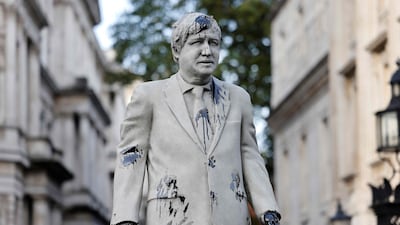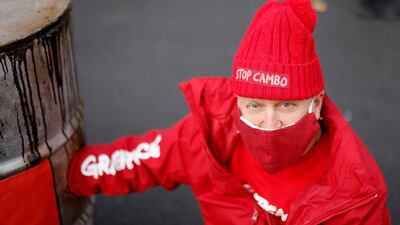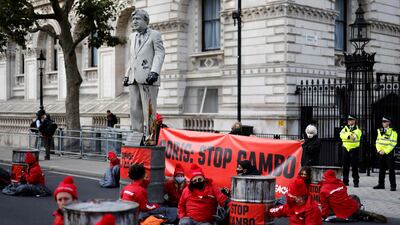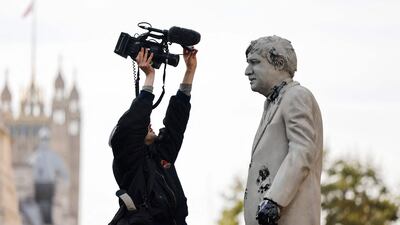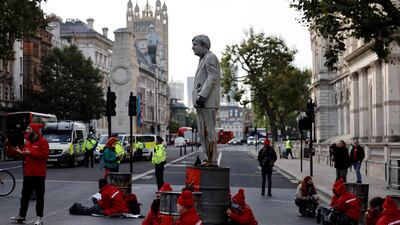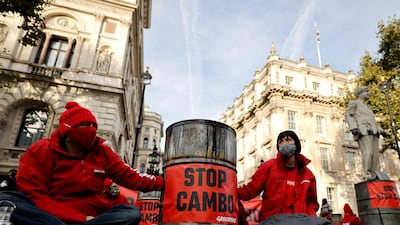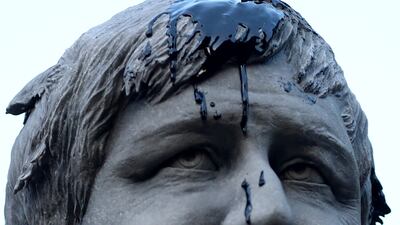British industries hit by soaring energy costs have warned the government that it is running out of time to stop hard-hit companies from going bust.
Adam Scorer, chief executive of National Energy Action, on Monday said the government needs to do more to protect consumers and "put some more cash in the pockets of the financially vulnerable households".
"At the moment we've got some mechanisms which are there to protect consumers, the price cap, certain rebates, other mechanisms, but they're for a well-functioning, competitive, energy market. They're not fit for the challenge of the cost-of-living crisis that we face at the moment," he said.
Escalating energy prices have also caught industrial consumers in a vice of financial constraint and stalled demand, leading to talks with the government in which executives are demanding bailouts.
Business Secretary Kwasi Kwarteng was at the centre of a storm after the powerful Treasury briefed that it was not entertaining discussions with his department on cash for the struggling sectors.
One business leader called on Prime Minister Boris Johnson to intervene directly in the war of words across the UK Cabinet table. "This is a critical time. The business secretary has also said it's a critical situation, and therefore why is the government just sitting on its hands and doing absolutely nothing at the moment?” said Gareth Stace, director general of UK Steel.
"The prime minister now needs to bang ministerial heads together, take control and remember that if he does nothing, then his levelling-up ambition will be left in tatters."
While Mr Kwarteng has pledged to keep the energy price cap in place to protect households struggling with rising costs, he has offered no additional support for businesses after bosses and some Conservative MPs called for help to prevent them going under as wholesale prices soar.
Wholesale gas prices have risen 250 per cent this year, placing financial strain on businesses that require large amounts to products made from steel, glass, ceramics and paper.
Some factories are reporting being “on the brink” of closure, with concerns that plants that shut down may never open again.
Industry fears over the survival of some factories are set against a backdrop of warring ministers, after the two departments responsible for handling the crisis fell out.
While Mr Kwarteng said on Sunday that struggling manufacturers and energy firms would not receive much more support because the government was “not in the business of bailouts”, he later said that he was working closely with Chancellor of the Exchequer Rishi Sunak to help the industry.
“I’m working very closely with Rishi Sunak ... to get us through this situation. I think he showed a great deal of flexibility when he allowed £500 million to be dispersed by local authorities for vulnerable consumers, and we’re working to see what we can do in terms of protecting industry,” he said.
However, a senior Treasury source has since denied the claim, saying no such talks took place despite manufacturers pleading for help to prevent further collapses.
About a dozen energy suppliers have failed since the start of August because of rising energy costs, with BP-backed Pure Planet the latest provider close to collapsing, as talks get under way with the regulator Ofgem to transfer customers to another energy company.
Consumers are starting to feel the pain after a price cap was increased at the start of the month and will face another jump in April.
While a “perfect storm” has pushed fossil fuel prices to record highs, Mark Haefele, chief investment officer at UBS Global Wealth Management, expects energy prices to stabilise over the next 12 months.
Demand for energy has rebounded sharply as economies reopen after the Covid-19 pandemic forced widespread closures, while at the same time weather-related power cuts, integration challenges with renewables, geopolitics and supply-chain bottlenecks have constrained supply.
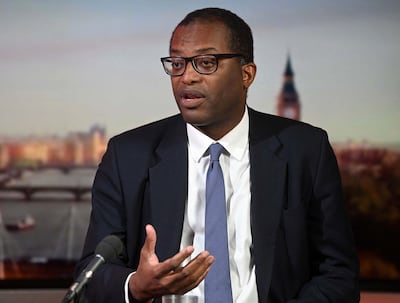
The rise in energy prices is creating concerns over stagflation but Mr Haefele said such fears are overstated.
“Overall we expect only a modest impact on growth and inflation from the current increase in energy prices. The risk to our analysis is a harsh Northern Hemisphere winter that causes energy prices to spike again, disrupts industrial production and delivers a larger hit to GDP," Mr Haefele said.
Meanwhile, climate activists from Greenpeace erected a mock Boris Johnson statue stained with oil outside No 10 Downing Street on Monday.
The group has warned the prime minister that he will “make a fool of himself” if he approves oil drilling at Cambo, an oilfield in the North Sea, before the Cop26 climate change summit in Glasgow.
“We delivered Boris Johnson the statue his legacy deserves if he approves the new oil drilling at Cambo. A statue dripping in oil,” the campaign group tweeted.
Their demonstration comes as Mr Johnson, his wife Carrie and their young son are on holiday in Marbella, Spain.
